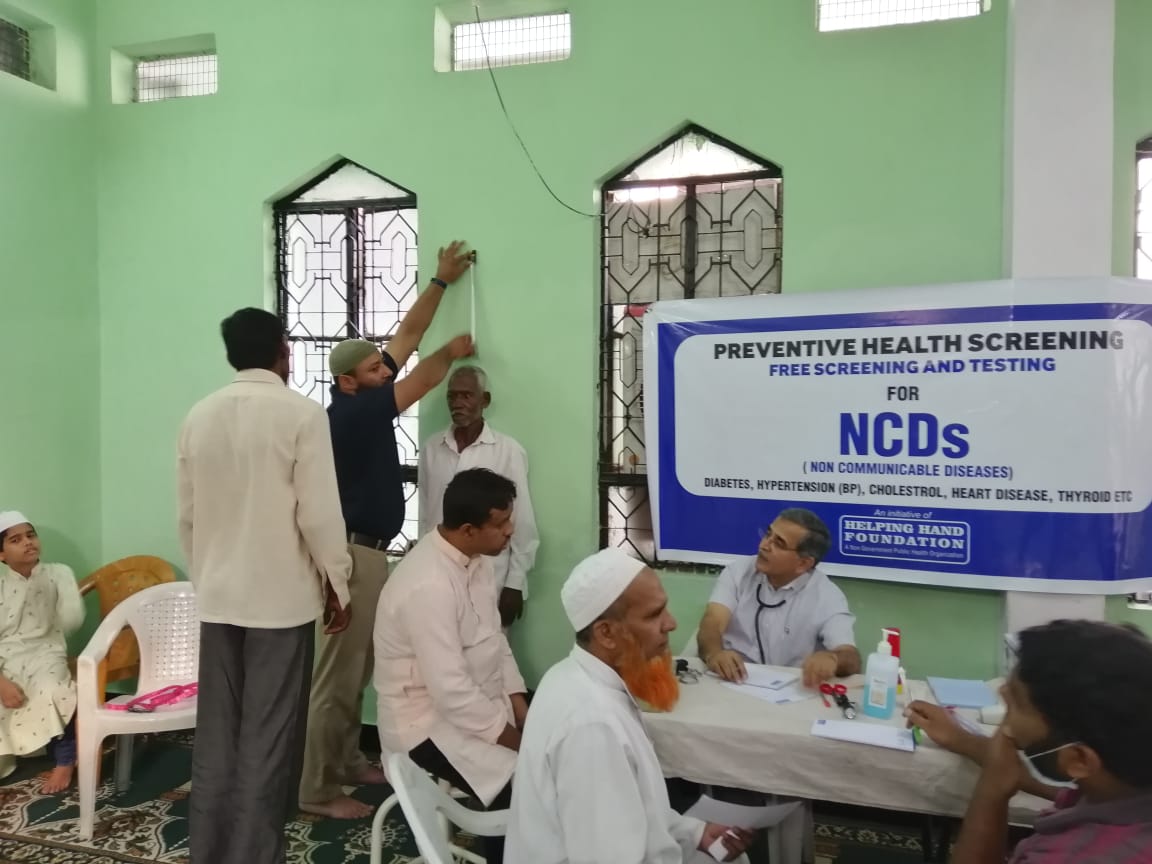Mosque turns screening centre for non-communicable diseases
By J.S. Ifthekhar
Hyderabad: It was a pleasant surprise for those who turned up for 'Namaz-e-Juma ' at Masjid-e-Ishaq in the old city of Hyderabad. Done with their prayers, they got screened for diabetes, hypertension, obesity, cardiovascular ailments, kidney diseases and cancer. The best part was that the worshippers did not have to pay anything for these tests.
The screening was part of a public health initiative launched by the Helping Hand Foundation (HHF) to check the spread of non-communicable diseases (NCDs). This is yet another medical facility being offered at Masjid-e-Ishaq, which is already home to a primary health centre.
A survey carried out by the HHF has shown that the old city remains the epicentre of NCDs, which account for about 60 percent deaths there. Around 70 people were screened for various diseases last Friday. Of them, 45 percent had hypertension, 65 percent were found to be in high-risk zone with a body mass index greater than 25. Nearly one-fifth were clueless about their health status, while many were found irregular with their medication.
Apart from free medication, referral to higher centres for NCD complications, counselling on lifestyle changes is also being offered to the economically weaker sections in the slums through the Masjid community health centre. "A fulltime trained counsellor will be available at the Centre for counselling and guiding patients on lifestyle changes that can help them improve their health status," said Mujtaba Hasan Askari of HHF.
The NCD clinic started by HHF is equipped with BP apparatus, glucometer, weighing scale, and tap. It also has trained community medicine doctors, nurses and counsellors. As per the WHO guidelines, the clinic is recording demography, smoking and alcohol history along with physical inactivity and diet history of those being screened.
The purpose of the NCD clinic is to detect hidden as also known cases of diabetes, hypertension and other chronic diseases in the community and help people with counselling and link them to the public health system for zero-cost treatment. The HHF plans to carry out preventive health screenings in different places of worship, colleges and community halls covering youth and adults in several urban slums in the old city.
"The NCD screening program is aimed at early detection and prompt treatment so that the burden of disease is minimised through assessment and prompt treatment", said Dr. Md. Abdul Basheer, chief medical officer of HHF.
Unhealthy eating habits and sedentary lifestyle are the primary reason for the spurt in the incidence of diabetes, hypertension, chronic kidney disease, cancer and fatty liver, leading to high morbidity and mortality. The onset of NCDs, particularly in the bread-earner segment, puts huge financial stress on the family and pushes it into poverty when the complications begin to show, say health workers.